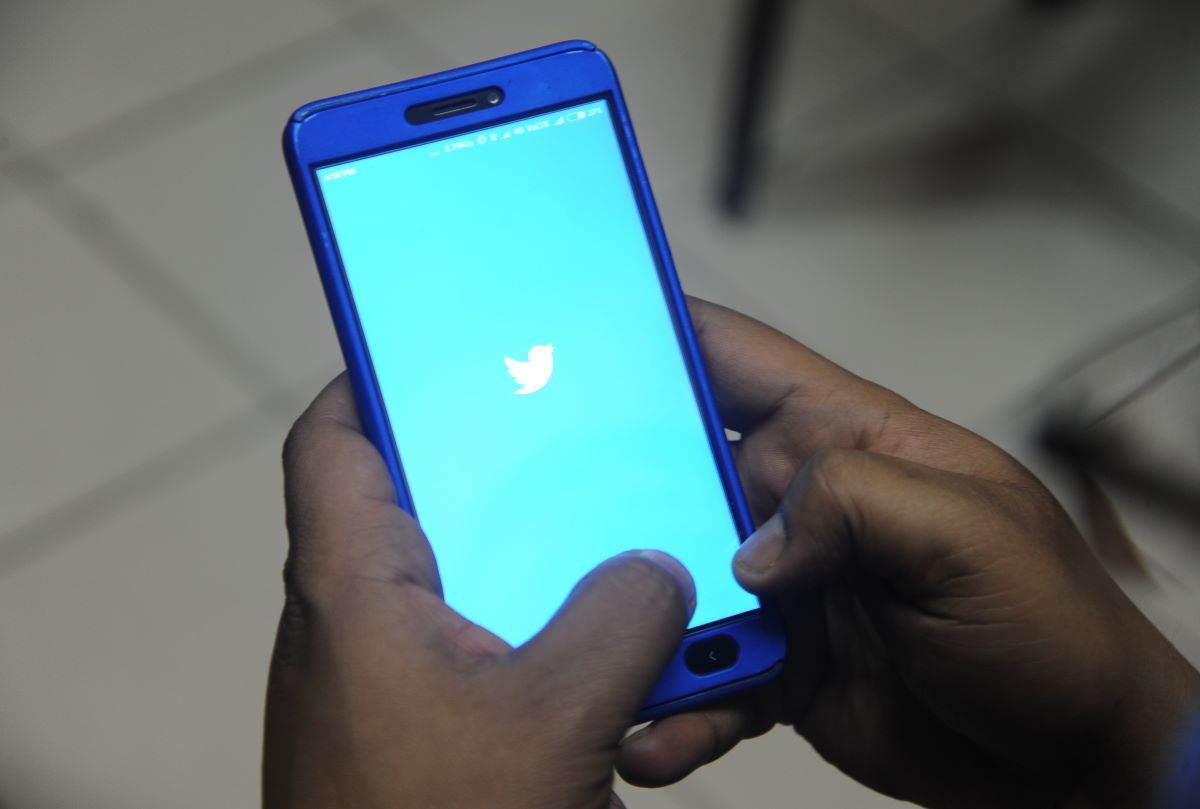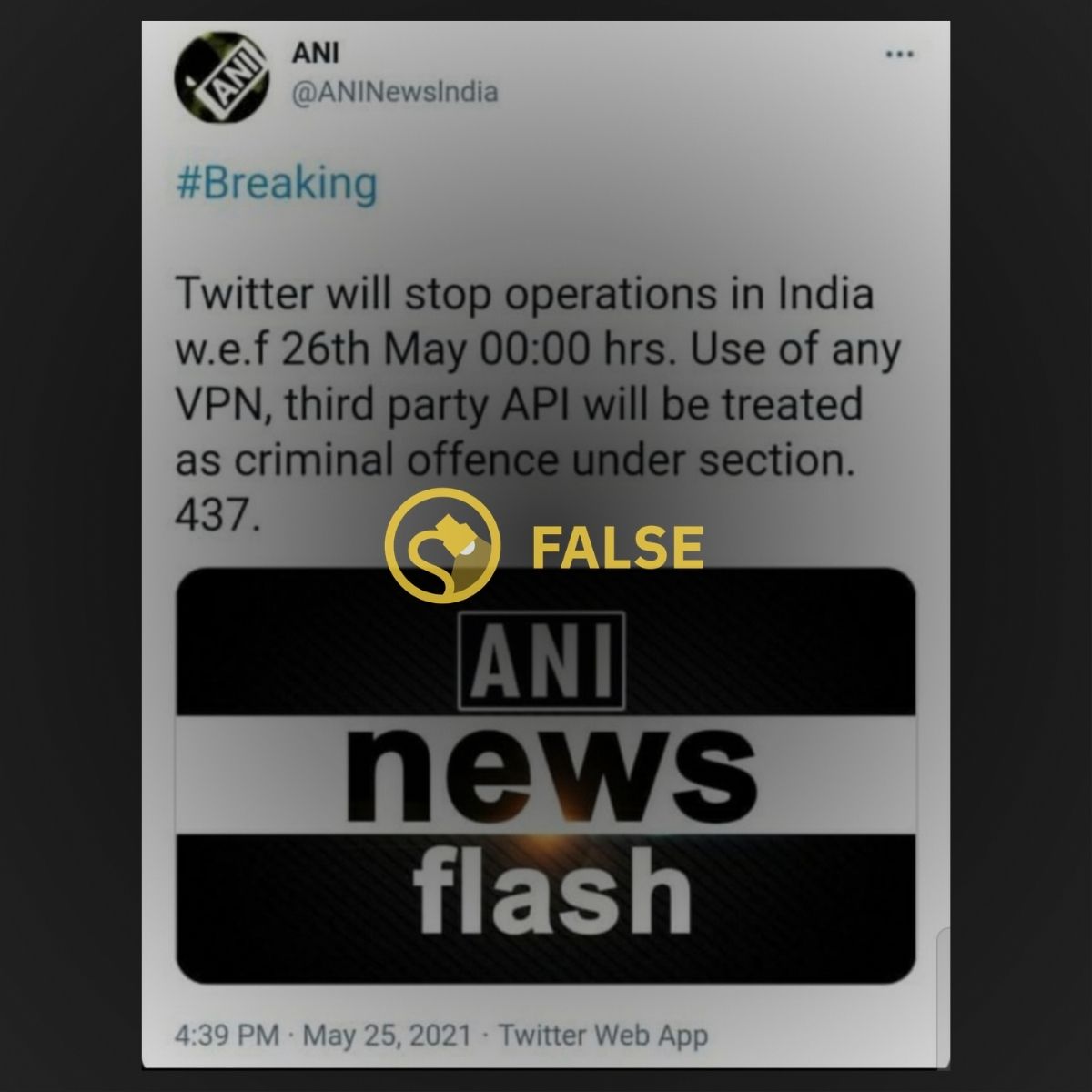Social media companies like Twitter, Facebook, and WhatsApp could possibly face legal action in India if they fail to comply with new digital-ethics guidelines enforced by the Ministry of Electronics & Information Technology (MeitY). The guidelines took effect on May 26, 2021, after companies were given three months to comply.
So far, there is no indication that Twitter has been banned in India, though relations have grown increasingly tense between the government and the social media company. Twitter has said they will advocate for changes in the regulations.
Unknown is how much Twitter has complied with the new regulations, and if the government is enforcing them.
As the COVID-19 crisis continues across India, Twitter has been at the forefront of the debate surrounding free expression and the Indian government’s response to the crisis. Relations between the social media outlet, which boasts around 75 million users in the country, and the ruling government under Prime Minister Narendra Modi grew tense in 2021. In February, the Ministry of Electronics & Information Technology (MeitY) announced new digital-ethics rules would take effect starting on May 26, 2021.
This deadline prompted online claims that Twitter would soon be banned in India because it seemingly had not complied with these rules.
The above tweet was posted by what appeared to be a satirical account and later became a private account. As of the early hours of May 26, 2021, Twitter had not yet been blocked or banned in India. But this does not mean the company won’t be facing some challenges as the new rules go into effect.
What are the new ethics rules? In late February 2021, MeitY issued a set of guidelines that included, among other things, a requirement that social media companies and digital publishers set up a grievance redressal system, appoint a grievance officer, and appoint a chief compliance officer to ensure the company complies with the rules and regulations. The new rules force companies to remove content that the government says is illegal within three days of being notified, including content that threatens the sovereignty of India, public order, decency, or morality.
Crucially, the new rules also require that upon being asked by the government or court, social media companies must reveal the originator of a certain offending tweets or messages. Such a rule would undermine end-to-end encryption in apps like WhatsApp, a risk to security and privacy. According to the new code:
A significant social media intermediary providing services primarily in the nature of messaging shall enable the identification of the first originator of the information on its computer resource as may be required by a judicial order passed by a court of competent jurisdiction or an order passed under section 69 by the Competent Authority as per the Information Technology (Procedure and Safeguards for interception, monitoring and decryption of information) Rules, 2009, which shall be supported with a copy of such information in electronic form:
Provided that an order shall only be passed for the purposes of prevention, detection, investigation, prosecution or punishment of an offence related to the sovereignty and integrity of India, the security of the State, friendly relations with foreign States, or public order, or of incitement to an offence relating to the above or in relation with rape, sexually explicit material or child sexual abuse material, punishable with imprisonment for a term of not less than five years [...]
A complete analysis of the rules can be found here.
Large companies like Facebook, Twitter, Instagram, WhatsApp, and others were given three months to comply. At the moment, only Koo, an Indian microblogging platform similar to Twitter, has accepted and adopted these guidelines. Facebook released a statement indicating it intended to comply with these rules:
We aim to comply with the provisions of the IT rules and continue to discuss a few of the issues which need more engagement with the government. According to the IT rules, we are working to implement operational processes and improve efficiencies. Facebook remains committed to people's ability to freely and safely express themselves on our platform.
It should be noted that Twitter and the government have been grappling all year over censorship issues. In late May 2021, Indian police visited a Twitter office in Delhi after the social media company slapped a "manipulated media" label on a tweet by the ruling BJP party’s spokesperson. In April 2021, Twitter complied with a request from the government to remove tweets that were critical of its handling of the COVID-19 crisis. In early 2021, during the months-long farmers protests around Delhi, Twitter complied with a government request to suspend some protest-related accounts, before reversing the suspension, citing "insufficient justification.” The government then threatened Twitter employees in India with legal action and even prison time.
In April 2021, Twitter said, “In the event we receive more requests to withhold content from the Government of India within the country, we will continue to engage openly and constructively based on our overarching commitment to serve the public conversation during a crisis.”
On May 27, 2021, Twitter posted a thread about the new rules and the police visit to their office. They added that they would advocate for changes to the regulations. We have reached out to Twitter for comment and will update this post when we receive more information.
What are the consequences of not complying with the new ethics guidelines? Companies could be held liable for offending content published on their platform, opening them up to expensive legal—including possibly criminal—action from the government.
It is unclear what all the companies are doing about these rules as the deadline passes, but in March 2021, the head of WhatsApp implied the possibility of pursuing legal action against these rules, especially if they the company is forced to halt end-to-end encryption on the platform. Indeed, multiple outlets, including digital publishers, have challenged sections of the rules in court.
On May 26, 2021, WhatsApp filed a lawsuit against the Indian government in a Delhi High Court, in an attempt to block the rules that they said would lead to "mass surveillance" by forcing social media platforms to hand over private information about their users. They took the greatest issue with the "first originator" rule, that they think would effectively end user privacy.
In a statement released by MeitY, Union Minister Shri Ravi Shankar Prasad said, "the Government of India is committed to ensure the Right of Privacy to all its citizens but at the same time it is also the responsibility of the government to maintain law and order and ensure national security [...] none of the measures proposed by India will impact the normal functioning of WhatsApp in any manner whatsoever and for the common users, there will be no impact."
"Any operations being run in India are subject to the law of the land. WhatsApp’s refusal to comply with the guidelines is a clear act of defiance of a measure whose intent can certainly not be doubted," the statement continued.
The Asia Internet Coalition (AIC), which counts tech firms like Google, Apple, Twitter, and Facebook among its members, has written to the government asking for at least a six-month extension for compliance. Citing the COVID-19 crisis and the challenges of configuring their operations with these new government demands, they wrote:
As Intermediaries we will undertake a comprehensive mapping of the laws against our services and identify the modification and compliance requirements under these Rules. This will require legal, operational and technical changes which could include recruitment of significant numbers of fresh and uniquely qualified personnel to handle the responsibilities, the latter being particularly challenging given the various restrictions and human impact caused by the new wave of COVID-19 [...]
Given that Twitter is still functional across India, but faces a number of challenges in the light of new digital-ethics rules being imposed by the government, we rate this claim as “Mostly False.” It is unclear what will happen to Twitter's India operations in the next few months, and how the new rules will be enforced amidst mounting legal challenges. We will update this post and our rating as more information becomes available.



